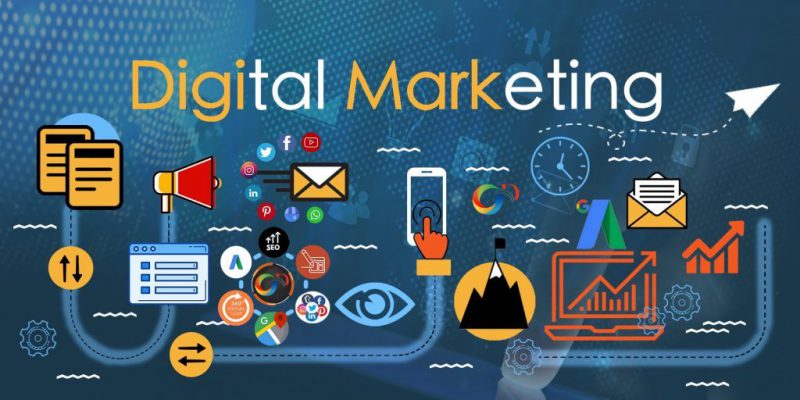Building an Effective Marketing Strategy in the Digital Age
In today’s fiercely competitive market, having an effective marketing strategy is not only an advantage but also a vital factor for every business. With the explosion of technology and the Internet, Digital Marketing has become an indispensable part, opening up huge opportunities to reach customers that traditional methods can hardly match.

Why Do You Need an Effective Marketing Strategy?
An Effective Marketing Strategy helps businesses clearly define their goals, identify the right potential customers and optimize resources. Instead of “shooting randomly,” you can focus on channels and messages that are truly influential, thereby increasing brand awareness, boosting sales and building sustainable relationships with customers.

The Fundamental Elements of a Digital Marketing Strategy
To build an effective marketing strategy in the digital environment, businesses need to consider the following core components:
- Research and Identify Target Audience:
This is the first and most important step. You need to understand who your customers are? Where are they? What are their needs, interests, online behaviors and problems? Outlining a customer portrait (buyer persona) will be the guideline for all future marketing activities.
- Search Engine Optimization (SEO):
SEO helps your website appear higher on Google’s natural search results pages. An effective marketing strategy must include SEO, focusing on keyword research, content optimization, improving user experience on the page (page loading speed, easy-to-navigate structure) and building quality links (backlinks).
- Content Marketing:
“Content is King” – content is always the heart of every Digital Marketing campaign. Creating valuable blog posts, videos, infographics, ebooks, podcasts will attract potential customers, build trust and affirm your business’s expert position.
- Paid Advertising:
Platforms such as Google Ads, Facebook Ads, LinkedIn Ads allow you to reach the right target audience quickly and with clear measurable results. This is a powerful tool to increase traffic, generate leads and boost sales immediately.
- Social Media Marketing:
Leverage the power of social platforms to interact directly with customers, build communities, share content and run advertising campaigns. Each platform has its own characteristics (Facebook, Instagram, TikTok, LinkedIn) so choosing the right one for your target audience is key.
- Email Marketing:
Email is still one of the highest converting channels. Building a quality email list and sending personalized messages, providing value, and special offers will help nurture leads and maintain loyalty.
Measure and Optimize
An effective marketing strategy is relentless. Continuously monitoring, analyzing data (via Google Analytics and other tools), evaluating the performance of each channel and adjusting when necessary is the key to long-term success. The market is always changing, so is customer behavior, so flexibility and adaptability are essential.
By integrating the above elements and continuously optimizing, your business will not only achieve business goals but also build a solid position in the minds of customers.
Conclusion
To truly succeed in the digital age, businesses need to clearly understand the importance of building and continuously optimizing an Effective Marketing Strategy. By understanding customers, integrating core digital channels such as SEO, Content Marketing, Paid Advertising, Social Media and Email Marketing, and continuously measuring and adjusting, you will not only achieve your business goals but also create a sustainable competitive advantage in a volatile market.
